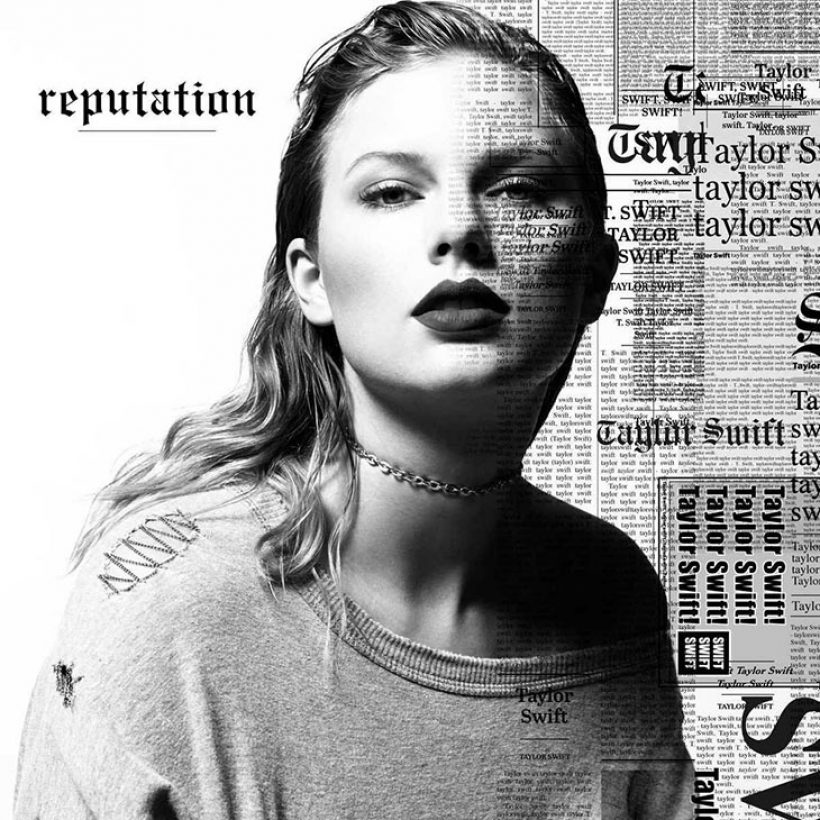NOTE: I skipped 1989 for now so that I can write about the rerecording after it comes out!
In the wake of what she believed to be the end of her career, with #TaylorSwiftisOverParty trending on Twitter and her comment sections flooded with snake emojis, Taylor Swift had a pivotal decision to make; she could retreat and accept a lifetime of hiding, or she could take the mic back and reclaim her image. As the story goes, she chose the second option, and her sixth album was born. As Swift herself put it, “in the death of her reputation, she felt truly alive.”
Reputation marked a turning point in Swift’s career, which had been forged until that point upon the basis of her prestige as America’s sweetheart. She denounced her past and started fresh by breaking all her patterns, waiting three years to release the album instead of her typical two and refusing to do any promotion during the album’s rollout. She even went so far as to black out her Instagram and reclaim the symbol of the snake by posting cryptic images that ultimately turned out to be previews of the album’s visuals. At last, she broke her silence with the notorious “Look What You Made Me Do,” and the Reputation era had begun.
At face value, Reputation is dark, edgy, and vengeful. Songs like “I Did Something Bad” and “This is Why We Can’t Have Nice things” create the cold and detached image around which Swift centered her record. Even the album’s opening track “…Ready for It” supports this image in its verses as Swift ventures into experimenting with rap-style singing and a trap beat for the first time; however, at its core, this record is more profound than it appears, and this becomes clear during the chorus of the same song when Swift lets her guard down and switches who she is addressing mid-song. Instead of singing about someone like she does during the verses, she starts singing to him directly, with softer and higher vocals. It’s from this point that the real message behind Reputation begins to reveal itself. While the album does serve as a diatribe against those who betrayed Swift, it is also proof of her success in finding those who truly matter to her and in discovering a love who she knows she can trust.
The fifth track of Swift’s albums are (as many fans are aware) usually reserved for the “saddest” song on the record. On Reputation, however, the spot is instead claimed by the most vulnerable track, “Delicate,” in which she reveals, in reference to this new love, that “[her] reputation’s never been worse / so [he] must like [her] for [her].” She goes on to declare in songs like “Don’t Blame Me,” that her “drug is [her] baby / [she’ll] be using for the rest of [her] life,” and even confesses that she wants to be his “End Game.” To someone experiencing this album for the first time, it may seem like this is the most intensely romantic she could be on such a cynical record, but the real vulnerability comes during the songs in the second half.
Reputation, in addition to being powerful and intimate, is also simply fun. With “Gorgeous” and “Getaway Car,” Swift delivers catchy melodies that serve as detailed narratives, filling in the blanks about everything that she had refused to comment on during her year-long silence. These lighter songs serve as a bridge to my personal favorite section of the album, which contains the amorous “King of My Heart,” “Dancing with Our Hands Tied,” “Dress,” and closing piano track, “New Year’s Day.” Swift creates a feeling of safety and secrecy despite her fame by providing no context into her relationship while also publishing her most personalized lyrics for everyone to hear, envy, or claim as their own.
In the song “Call it What You Want,” Swift lets her guard down entirely, revealing what the album is at its core with the lyrics,“all [her] flowers grew back as thorns / windows boarded up after the storm / he built a fire just to keep [her] warm.” While Swift is undeniably independent, powerful, and victorious in Reputation, her real triumph comes from the authenticity of her happiness. In her “fall from grace” she may have lost her reputation and those who didn’t truly care about her, but with Reputation, she found those who mattered most and rose from the dead.

This is a really great analysis. I was aware of the general message of Reputation but you provided context that changes the way I view the album for the better.
Just to address the first paragraph, I’ve become more aware than ever of how some men HATE successful women, and need to see them deplatformed. It is such a social problem we have. I applaud Taylor for refusing to let this Era of her Eras be the last, she has so much potential in the future. Reputation, as you pointed out, is a great album for gritty, bold self-confidence and self-advocacy. Great blog post.
It’s always fun to read these blogs because it’s obvious how much time you put into finding out the context behind each album and analyzing the meaning of each song. As you write about more recent albums, I feel like I know more about this one than the last, but you always have information in your posts that I just didn’t know or didn’t think about when listening to the song. I look forward to what you have to say about her next album.